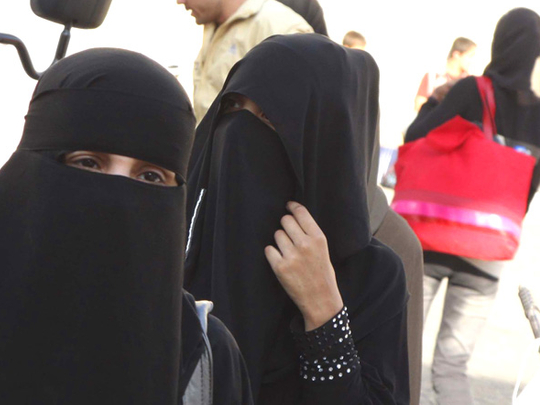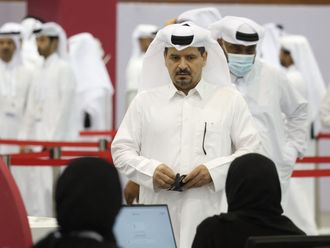
Manama: Participants in the Doha Debates, a public forum for dialogue, have rejected the French government's controversial ban on face veiling, in a session that featured an exceptionally heated discussion and had an unusually high turnout.
The motion was defeated after 78 per cent rejected it, while 22 per cent voted were in its favour.
Opening the debate with remarks supporting the motion, Jacques Myard, a member of the ruling conservative UMP coalition in the French national assembly, insisted that France was a secular state.
"No one in our history has worn a piece of cloth on his or her face. Face veiling appears, for the majority of the people in France, to be a breach of the common will. It is contrary to the dignity of the human being,” he said.
Myard was the co-chair of the parliamentary party, set up to investigate the issue of full face veiling in France.
"I am a victim when you deny my right to see your face. Those who refuse to show their face in public are excluding themselves from the national community," he was quoted by Qatari daily The Peninsula as saying.
However, his arguments were rejected by journalist Nabila Ramdani. "I feel that the French ban has nothing to do with national unity and that it is tantamount to stigmatising Muslim women," said the Paris-born freelancer.
"The ban was based on several myths such security and the oppression of Muslim women. It involves a denial of religious freedom and the freedom of expression, as pointed out by organisations like the Amnesty International," she said.
But, Farzana Hassan, author and women's rights activist, joined Myard to support the motion by saying that the Muslim face veil, the Burqa, poses a real security threat and could be used by terrorists and suicide bombers to hide weapons and bombs. She argued that face veil was antithetical to Islam as it is degrading to women.
"Radicalisation is growing stronger. The wearing of the face veil has become a political statement," she said.
She further argued that "the ban on the veil will promote integration".
Mehdi Hassan, senior political editor of the UK publication the New Statesman, came out against the French decision.” The ban is unnecessary, self-defeating and morally wrong.
It is unnecessary because those wearing the face veil in France are a very small, negligible minority," he said. "The ban is self-defeating in the sense that it would further alienate the Muslim community. To enforce, on women what to wear and what not to wear, is against fundamental human rights and thus morally wrong."
In the question and answer session, several participants and the panelists opposing the motion wondered why France had become obsessed with the face veil, when the country had more important issues to tackle.
"Muslims in France are discriminated against in employment, housing and other areas. We wonder why the government does not take up such serious issues," Hassan said.
He added that the French ban should be viewed from a wider European perspective and as an anti-Muslim campaign waged by right-wing extremists in the West.












